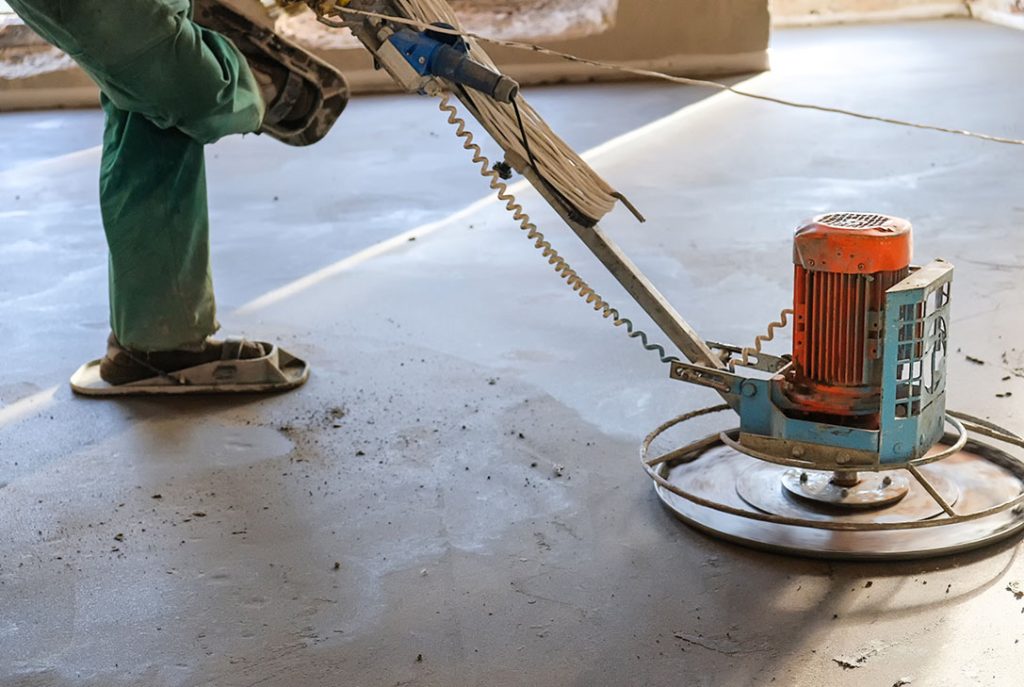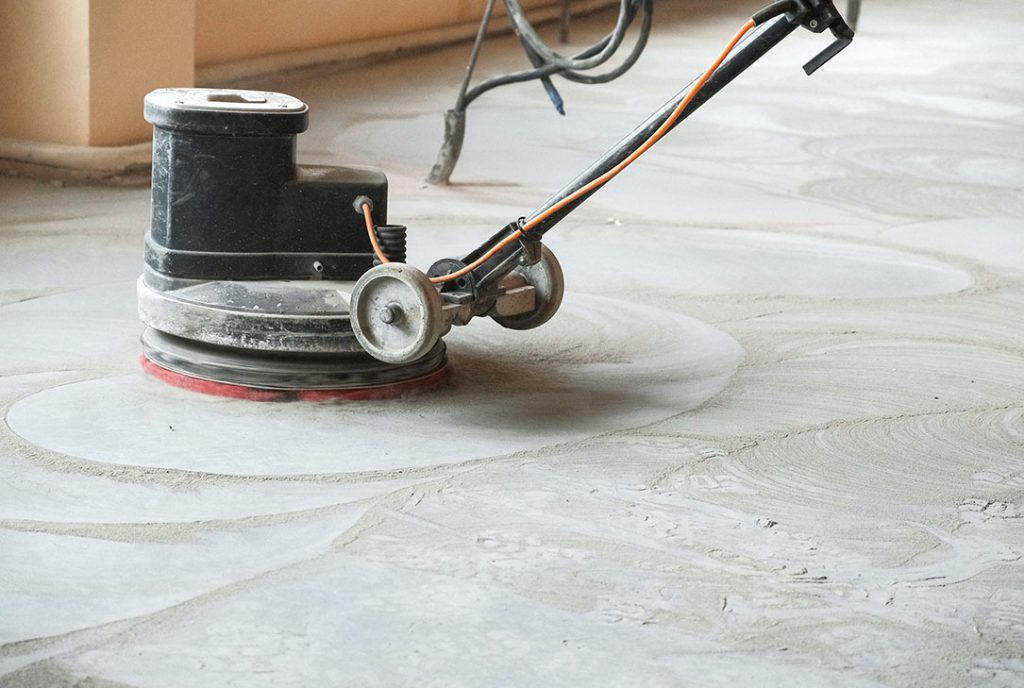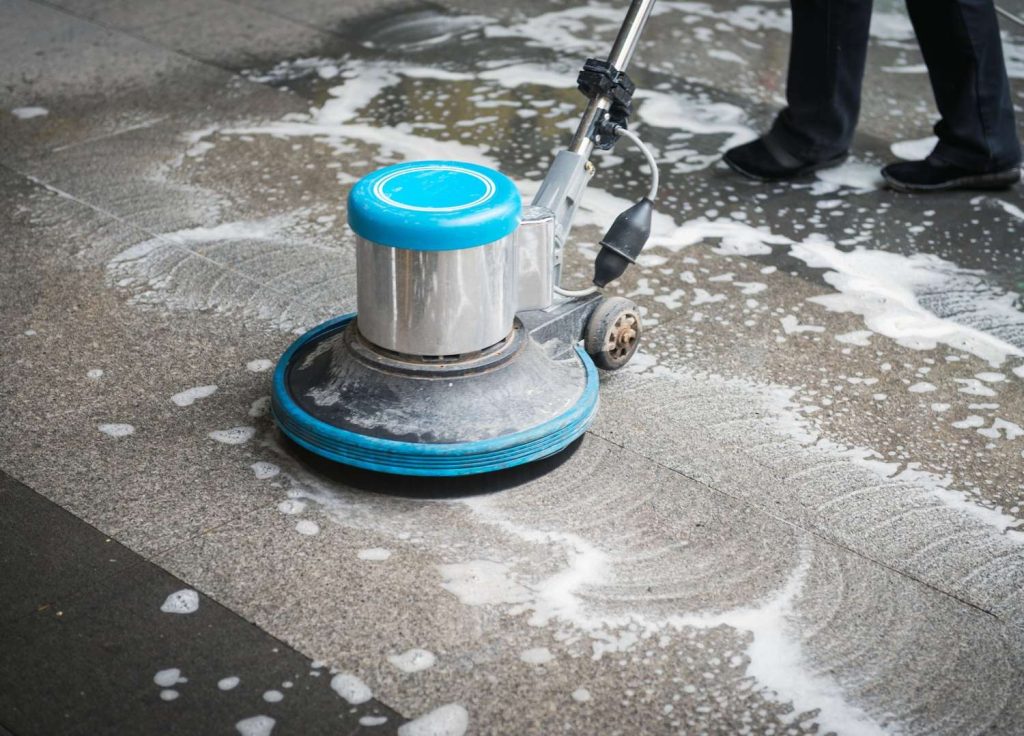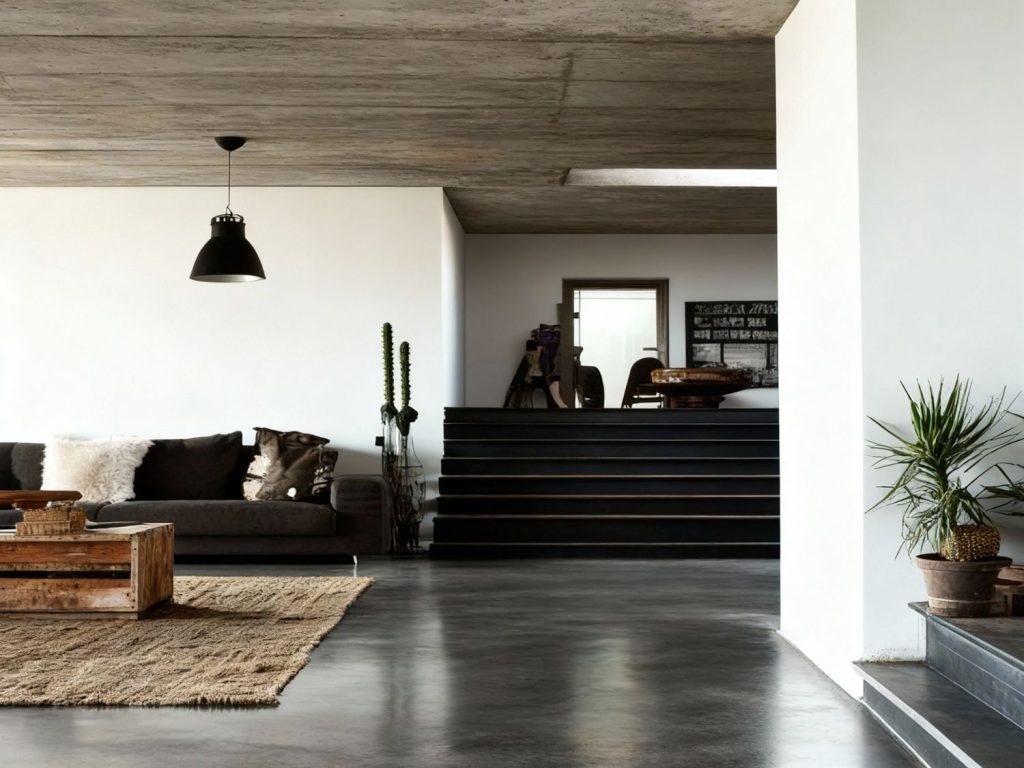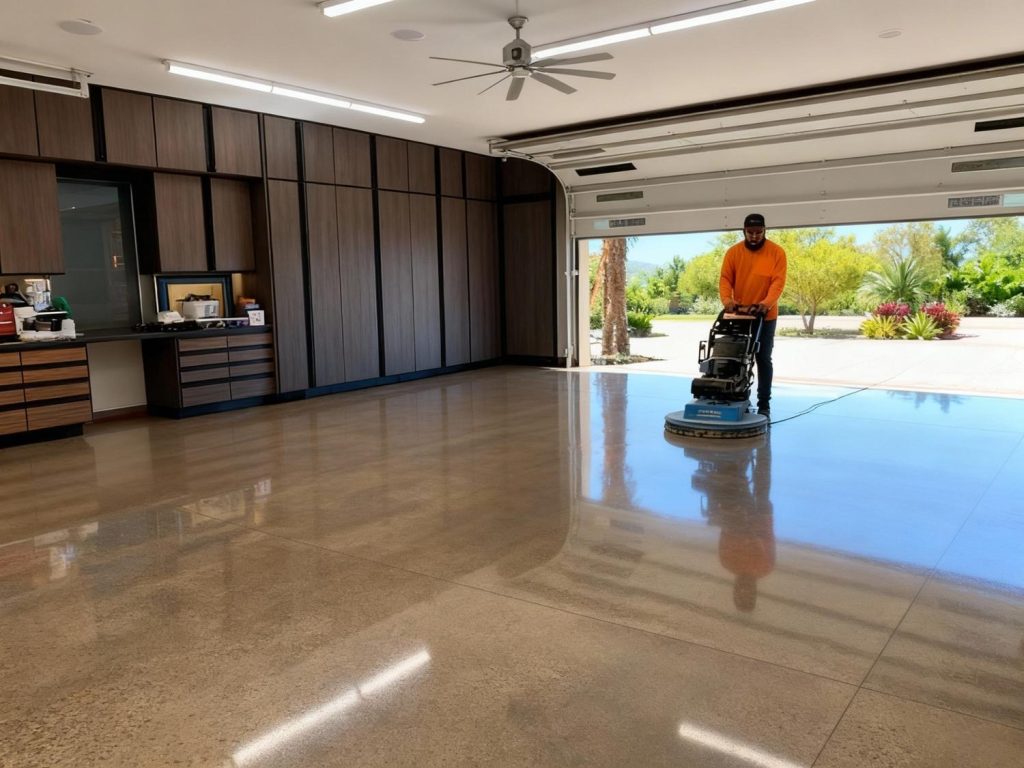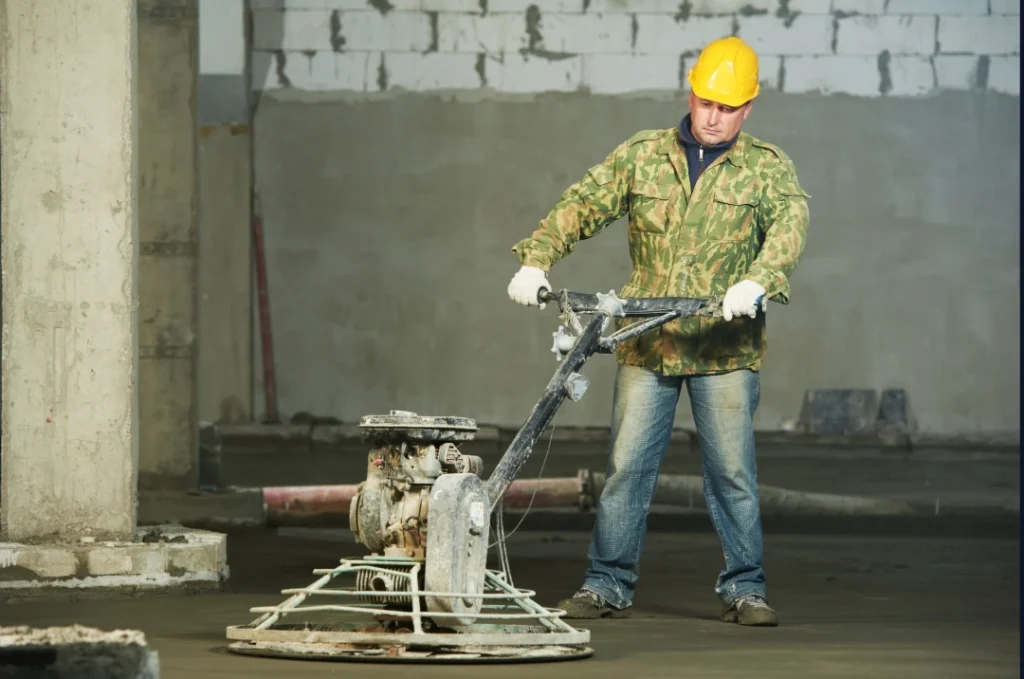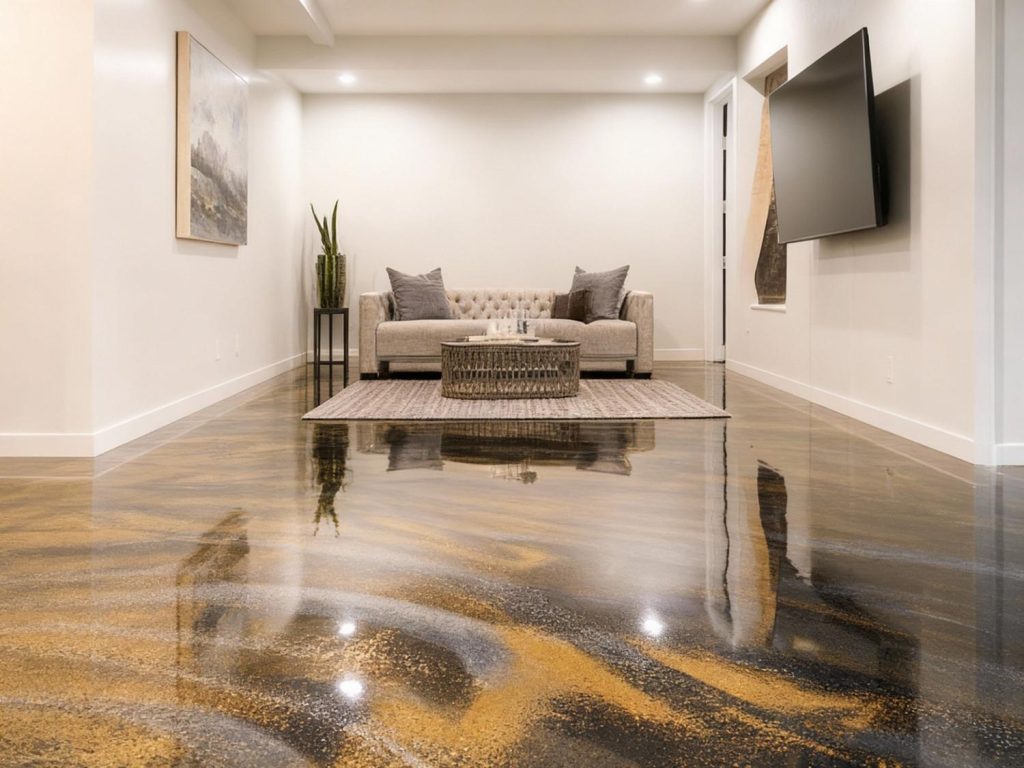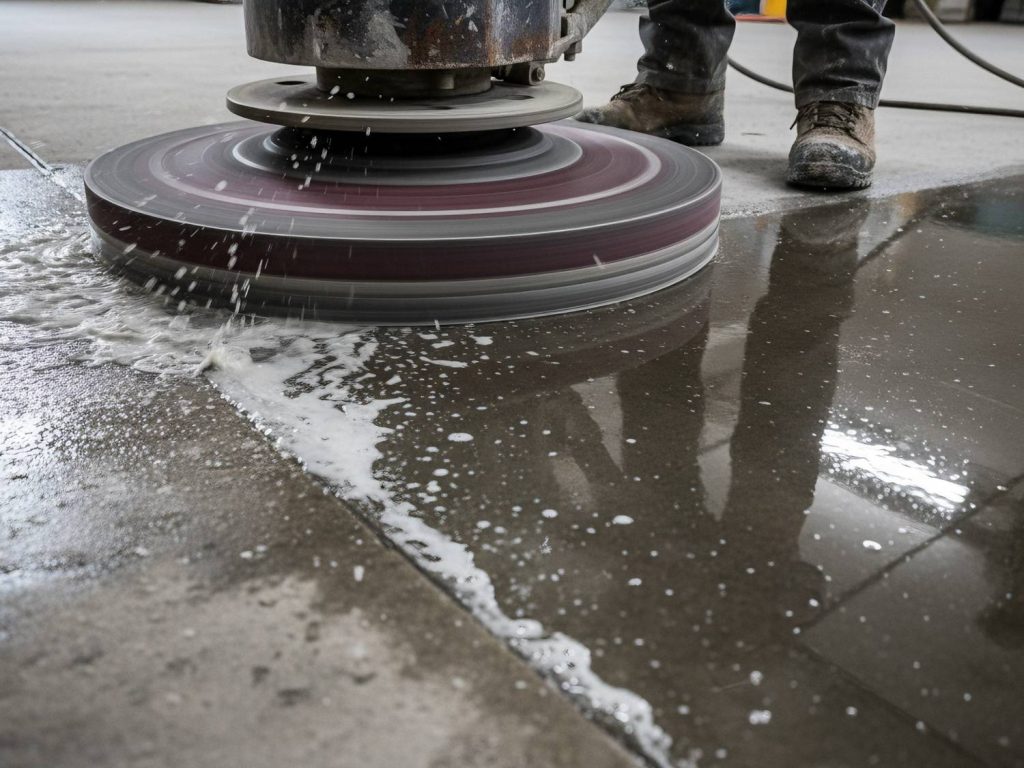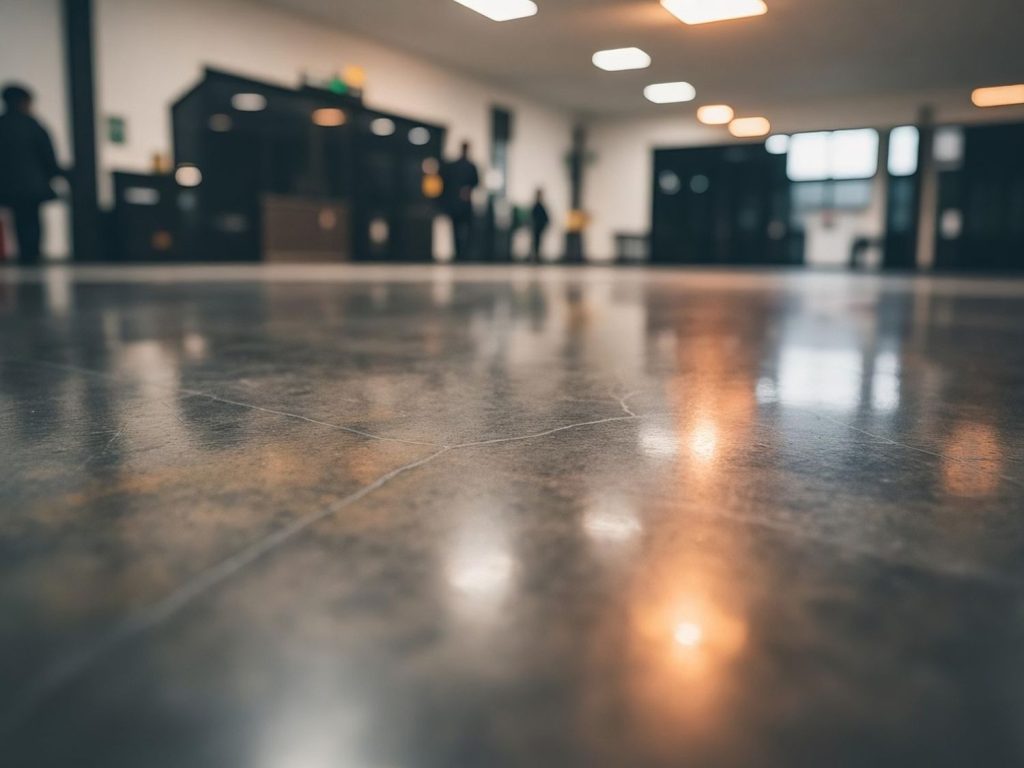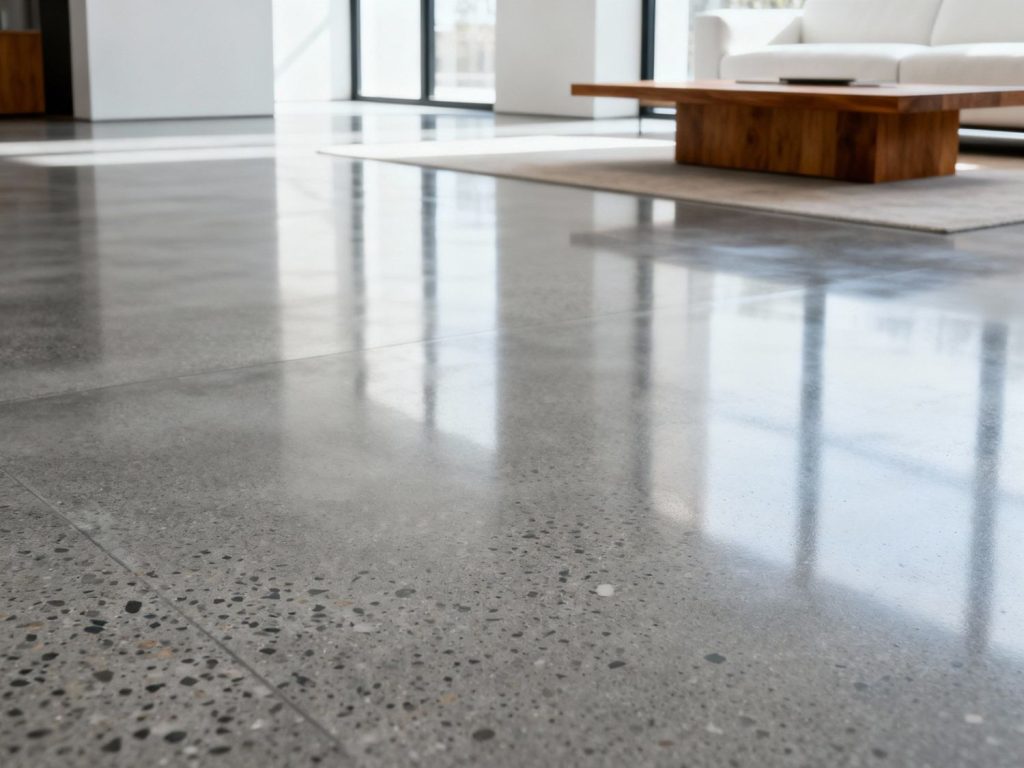How to Clean and Deep Clean Polished Cement Floors
Posted On May 26, 2025
Polished concrete, also called polished cement flooring, is known for being low maintenance. However, like any surface, it requires regular care to maintain its clean look and reflective finish. Without consistent cleaning, polished concrete can accumulate dirt, debris, and dull over time. Whether you’re managing a high-traffic commercial space or keeping your home looking sharp, understanding how to properly clean—and occasionally deep clean—your polished cement floors is essential.
This guide explains both routine and deep cleaning methods, highlighting safe practices and tools to use for the best long-term results.
Understanding the Nature of Polished Concrete Floors
Before jumping into the cleaning process, it’s helpful to understand how polished concrete is created. This type of flooring is achieved by grinding a concrete surface with progressively finer abrasives and then polishing it to the desired sheen. A chemical densifier is often applied to harden the surface, making it more durable and resistant to staining.
While polished concrete is tough, its smooth, porous surface can still trap dust, fine grit, and liquids over time—especially if it isn’t properly sealed or maintained. That’s why routine and periodic cleaning practices are recommended.
Daily and Weekly Cleaning Routine
For most residential and commercial polished cement floors, daily or weekly cleaning is enough to maintain appearance and hygiene. Here’s a breakdown of how to keep them in top condition with minimal effort.
1. Dust Mop Daily
Use a microfiber dust mop to remove loose dirt, dust, and grit. These particles, if left unchecked, can act like sandpaper and slowly wear down the polished surface.
Tips:
- Avoid cotton mops, which may leave lint.
- Use a wide dust mop (24 inches or more) for large spaces.
- Mop in overlapping passes to catch finer debris.
2. Damp Mop with a Neutral Cleaner
Every few days, follow up with a damp mop and a pH-neutral cleaning solution. Avoid acidic or alkaline cleaners, as they can degrade the polish or sealer.
Steps:
- Mix neutral cleaner with warm water (follow label instructions).
- Mop with a clean, non-abrasive microfiber pad.
- Avoid flooding the floor—too much water can damage unsealed concrete.
- Rinse the mop frequently and change the water as needed.
How to Deep Clean Polished Concrete Floors
Routine cleaning keeps your floor looking clean on the surface, but deep cleaning addresses embedded grime, stains, and restores the reflective finish. Deep cleaning is typically done every 3–6 months, depending on the floor’s usage and traffic.
1. Assess the Surface
Before beginning, inspect the floor for problem areas:
- Discoloration or staining
- Embedded dirt in porous areas
- Dull spots or traffic patterns
- Spills that weren’t cleaned properly
This will help determine whether basic deep cleaning or more intensive measures like re-burnishing are needed.
2. Choose the Right Equipment
For larger areas or tough build-up, using an automatic floor scrubber or low-speed rotary machine with soft brushes or pads is ideal.
Best practices:
- Use soft white or red pads to avoid damaging the surface.
- Avoid black or green pads—they’re too abrasive for polished concrete.
- Attach a vacuum or squeegee attachment for efficient water removal.
3. Use a Non-Acidic Degreaser or Cleaner
For deep cleaning, you can use a slightly stronger version of your neutral cleaner or a dedicated non-acidic degreasing agent designed for polished concrete.
Instructions:
- Apply the cleaner in sections to avoid drying.
- Scrub gently using the machine or by hand with a microfiber mop or pad.
- Let the solution sit for 5–10 minutes (do not let it dry).
- Remove the solution using a wet vacuum or mop.
4. Rinse Thoroughly
Always rinse the floor after deep cleaning to remove any remaining cleaner, which can cause residue buildup or dullness.
Use clean, warm water and a mop or vacuum to collect the rinse water. Let the floor dry fully before walking on it.
Handling Stains and Spills
Polished cement floors resist most spills, but liquids left standing for long periods—especially oils, wine, juice, or cleaning chemicals—can stain if the floor is unsealed or if the sealer has worn off.
Removing Common Stains:
- Oil or grease: Use a pH-neutral degreaser and scrub with a soft pad.
- Food or beverage stains: Clean with warm water and a small amount of dish soap.
- Rust stains: Use a concrete-safe rust remover (avoid acidic options).
For stubborn spots, consult a flooring professional who can safely treat the area or re-polish it if needed.
Avoid These Common Cleaning Mistakes
Even though polished concrete is tough, improper cleaning can reduce its lifespan and visual appeal.
Avoid:
- Acidic or bleach-based cleaners – They can etch or dull the surface.
- Ammonia or vinegar – Too alkaline or acidic for concrete.
- Rough brushes or abrasive pads – Can scratch and wear down the shine.
- Steam cleaning – Too much heat and moisture can damage concrete sealers.
Use tools and products labeled safe for polished or sealed concrete. If in doubt, test any new product in a hidden corner.
Restoring Shine Without Re-Polishing
If your floor looks dull even after deep cleaning, it might not need to be re-polished just yet. You can often burnish it to restore luster.
Burnishing vs. Re-Polishing
- Burnishing is a quick process using a high-speed burnisher and special pads to bring back the floor’s sheen.
- Re-polishing involves using diamond abrasives to mechanically refinish the surface—more intensive and typically needed every few years.
Burnishing is ideal between professional maintenance cycles and helps keep the floor looking vibrant.
Commercial vs. Residential Cleaning Needs
Residential Cleaning
- Usually limited to light dusting and weekly mopping.
- Deep cleaning every 6–12 months may be sufficient.
- Area rugs help reduce cleaning frequency in living spaces.
Commercial Cleaning
- Requires daily dust mopping due to higher foot traffic.
- Often uses auto-scrubbers for efficiency.
- May need professional burnishing every few months to maintain shine.
Maintenance schedules can be adjusted based on usage, type of business, and client expectations.
Tips for Long-Term Maintenance
- Use entryway mats to trap dirt and prevent scratching.
- Clean spills immediately to avoid staining or etching.
- Reapply sealer every 2–3 years to maintain stain resistance.
- Use felt pads under furniture legs to prevent abrasion.
- Avoid dragging heavy objects across the floor surface.
Preventative measures go a long way in keeping your polished concrete floor looking its best.
Conclusion
Polished concrete floors are durable, stylish, and relatively low maintenance—but they still need proper care to maintain their look and performance. Routine sweeping and damp mopping remove daily grime, while periodic deep cleaning restores the floor’s natural sheen and prevents long-term damage. By using the right tools, cleaners, and techniques, you can extend the life of your polished cement floor and enjoy its benefits for years to come. Whether you’re managing a commercial property or maintaining a home, a consistent and thoughtful cleaning routine makes all the difference.
One Awesome Concrete Serving the Willow Park Community and Beyond in Houston
One Awesome Concrete is dedicated to serving the diverse needs of the local community of Houston, including individuals residing in neighborhoods like Willow Park. With its convenient location near landmarks such as the Akadia Event Center and major intersections like 8 Willows Rd & Hillcroft Ave (coordinates:29.614337661317496, -95.49644780399167), we offer Polished cement floors Houston services.
Get Polished cement floors Houston Services at Willow Park Now
Contact Us
(832) 368-9257
Navigate from Willow Park to One Awesome Concrete Now
5 Highly Relevant Frequently Asked Questions (FAQs)
- What is the best way to clean polished cement floors daily?
Use a microfiber dust mop and a pH-neutral cleaner for regular maintenance. Avoid abrasive tools or acidic solutions. - How often should polished concrete floors be deep cleaned?
Deep cleaning is recommended every 3 to 6 months, depending on traffic levels and how much dirt builds up. - Can you use vinegar or bleach on polished concrete?
No. Both vinegar and bleach are too harsh and can damage the polish or wear down the protective sealer. - What equipment is best for deep cleaning large polished concrete areas?
Auto-scrubbers with soft pads or low-speed rotary machines are ideal for deep cleaning larger commercial or industrial spaces. - Do polished concrete floors need to be resealed?
Yes. Sealing should be done every 2–3 years to preserve stain resistance and surface durability.
RELIABLE, TRUSTWORTHY, and AFFORDABLE PROFESSIONAL SERVICES
or Call us now at
(832) 368 – 9257
Recent Blogs

EXPERT CONSULTATION, SWIFT QUOTATIONS
Ready to bring your concrete vision to life? Reach out to One Awesome Concrete Polishing & Staining today for expert consultations and fast, accurate quotations. Our team of professionals is dedicated to providing personalized guidance and precise estimates, ensuring that your project is executed to perfection. Whether you’re looking to enhance your home, renovate a commercial space, or overhaul an industrial facility, we have the experience and tools to handle projects of all sizes. Contact us today, and let’s work together to transform your space with the beauty and durability of cement polishing company Houston. Experience top-tier service and exceptional results with One Awesome Concrete Polishing & Staining.




